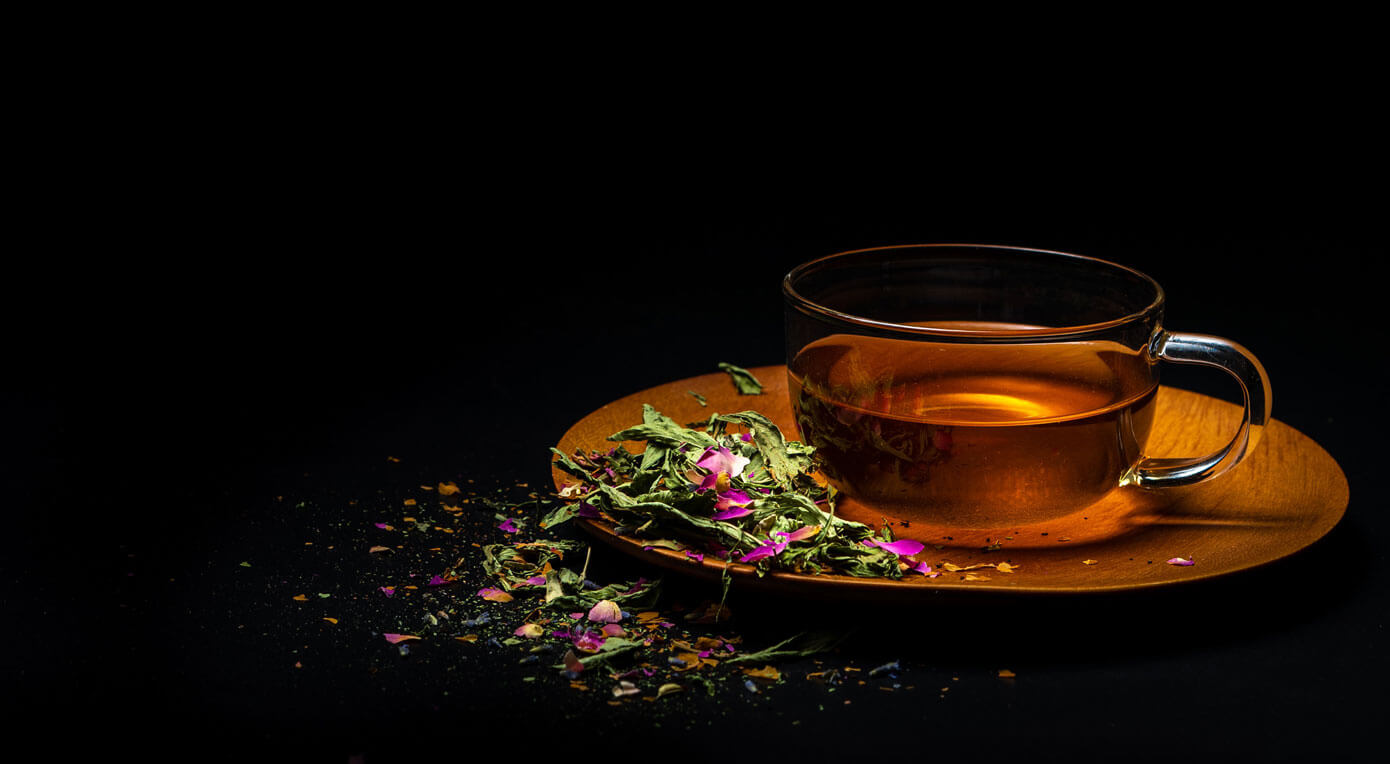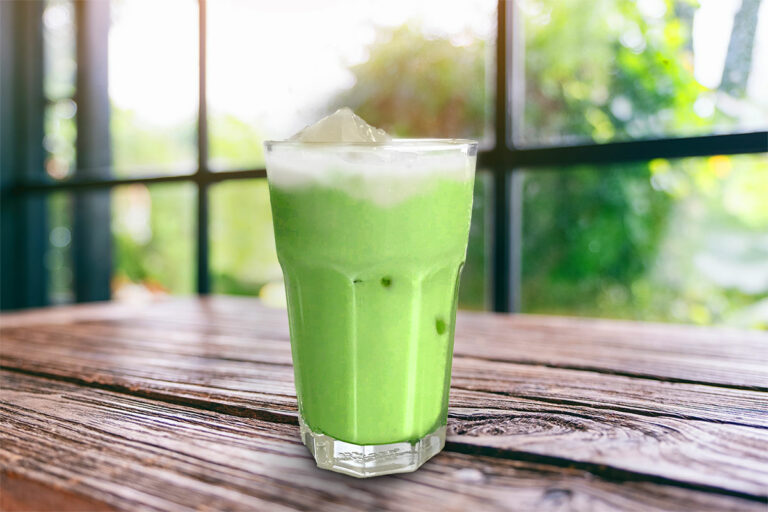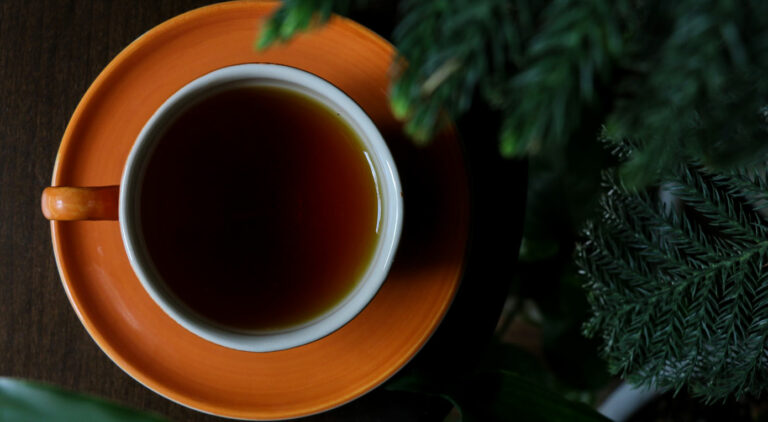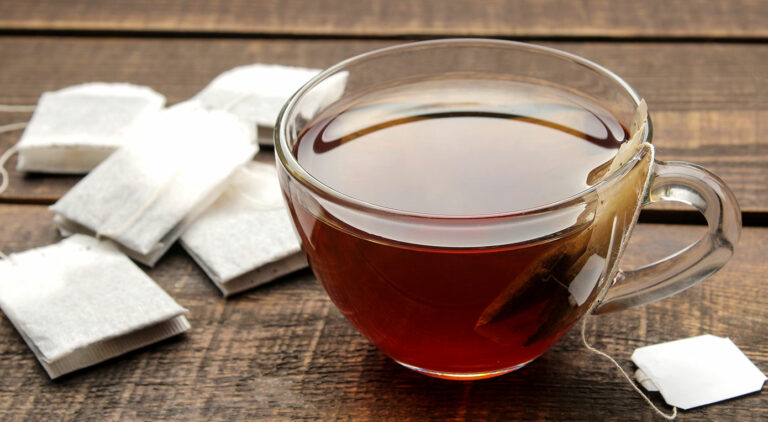What is Mamaki Tea Good for? 10 Amazing Benefits You Didn’t Know About
Tea in general has long been known to be filled with good health benefits and some medicinal properties. [1]https://www.ncbi.nlm.nih.gov/pmc/articles/PMC4322420/ Is there any healthy tea that is tasty, naturally caffeine-free, and can be used for medicinal purposes? Introducing the māmaki tea, a herbal tea that is an antioxidant powerhouse. Besides that, what is māmaki tea good for?
Do not confuse māmaki tea with true teas like green tea, black tea, white tea, oolong tea, chai, Japanese tea, Chinese tea, Sri Lankan tea, American tea, or British tea. While these teas are made from the fresh leaves of the Camellia sinensis plant. [2]https://books.google.com.sg/books?id=DJ2j_bX6WTUC&pg=PA8&redir_esc=y The māmaki tea is made from fresh māmaki leaves of the māmaki plant.
Mamaki tea is a tisane indigenous to Hawaii and it’s known to be a miracle plant for a long time. These days it has become quite popular in mainland countries as well. This blog will give you everything you need to know about this native Hawaiian herbal tea — from its purported health benefits to how to brew it yourself.
What is Mamaki?
Also known as Pipturus Albidus [3]https://en.wikipedia.org/wiki/Pipturus_albidus, it’s a sacred plant amongst the native Hawaiian community.
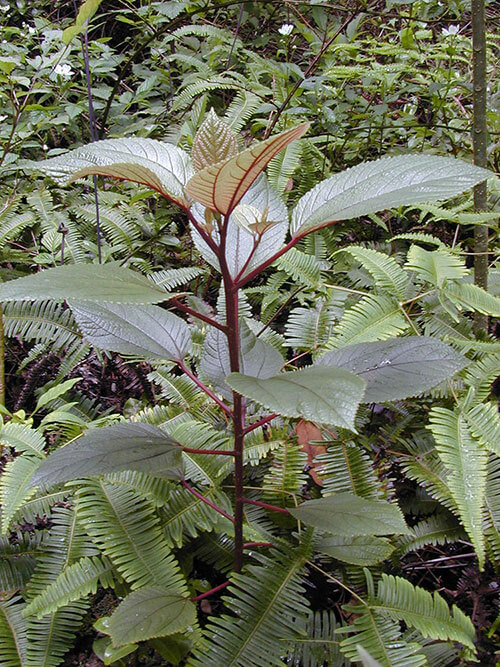
The māmaki plant is a large shrub or small tree that can grow up to 3 meters tall. It has broad leaves with whitish undersides and green, pink, or reddish lines on the veins. The flowers develop into white mulberry-like fruit containing tiny brown seeds that are capable of generating new plants.
While fresh leaves from the plant were used to make herbal tea, the māmaki tree bark was useful in making a course type of cloth known as Kapa. The long fibers were used for rope and cordage. Native Hawaiians also use māmaki fruits to treat illnesses. [4]http://jabsom.hawaii.edu/wp-content/uploads/2017/01/Mala_Final-1.pdf
Other than making a cup of māmaki tea, fresh māmaki leaves can also be added to soups, salads, sandwiches, or cooked on their own.
Where Does Mamaki Come From
In a study done at the University of Hawaii in 2006, it was discovered that the māmaki tree may be a native Hawaiian plant, but they are found not only found naturally in the main Hawaiian Islands, but also in the Philippines, Polynesia, Micronesia, and Papua New Guinea. [5]https://scholarspace.manoa.hawaii.edu/bitstream/handle/10125/20600/M.S.Q111.H3_4086_r.pdf In other words, as an endemic species, Hawaii island is the only place the māmaki plant is grown naturally, but it can be grown elsewhere if you give it the right conditions and environment.
What is Māmaki Tea Good for?
In a study, māmaki tea is found to have healing properties against infections. [6]https://pubmed.ncbi.nlm.nih.gov/8786654/ Among the Hawaiian natives, māmaki has such natural medicinal benefits that the leaves of the plant are turned into a form of herbal medicine used for general debility, expectant mothers, blood purification, and as a laxative. [7]https://journals.calstate.edu/cjhp/article/download/556/446
The māmaki tea benefits extend beyond medicinal uses. It has the potential to improve one’s health in general better than other conventional teas.
The Power of Māmaki Tea
Māmaki tea by nature has a higher concentration of polyphenols than other commercial teas. [8]https://scholarspace.manoa.hawaii.edu/bitstream/handle/10125/20600/M.S.Q111.H3_4086_r.pdf Polyphenols are a biologically potent antioxidant that helps with the prevention and the progress of chronic diseases related to inflammation. And this compound consists of natural antioxidants called catechins, chlorogenic acid, and rutin.
Here are the health benefits of these three antioxidants:
- Catechins may reduce the risk of cardiovascular disease, diabetes, lung cancer, and prostate cancer. It can also help with weight management. Other than māmaki tea, foods high in catechins are wine, chocolate, and tea. [9]https://nutrition.ucdavis.edu/outreach/nutr-health-info-sheets/pro-catechins
- Chlorogenic acid (CGA) has potential health benefits in managing obesity and obesity-related metabolic disorders. It may also improve the impairment of short-term or working memory. Other than māmaki tea, CGA is a major component of coffee.[10]https://www.sciencedirect.com/topics/neuroscience/chlorogenic-acid
- Rutin is a citrus flavonol that’s been researched to help with inflammation and metabolic function, such as lowering blood pressure and improving blood flow. Other than māmaki tea, rutin can be found in Arabian coffee, Rooibos tea, magnolia vine, Tartary buckwheat, and hawthorn [11]https://www.sciencedirect.com/science/article/abs/pii/S1043661822001086.
To these scientific studies, māmaki tea is reported to be a powerful antioxidant with antibacterial and antiviral activities. [12]https://journals.sagepub.com/doi/full/10.1177/1934578X221080945
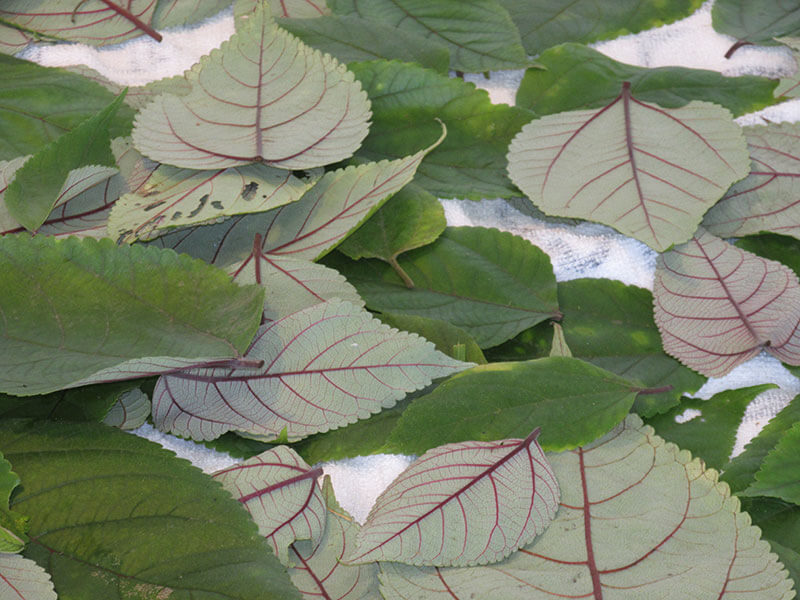
What’s So Good About Antioxidants?
One of the causes of many diseases and health problems is due to the effect of free radicals in the body, including heart disease, arthritis, and certain cancers.
Antioxidants scavenge free radicals from the body cells and prevent or reduce the damage caused by oxidation. A diet high in antioxidants may reduce the risk of many diseases.
The protective effect of antioxidants continues to be studied around the world. For instance, men who eat plenty of the antioxidant lycopene (found in tomatoes) may be less likely than other men to develop prostate cancer. [13]https://www.betterhealth.vic.gov.au/health/healthyliving/antioxidants#disease-fighting-antioxidants
This explains why māmaki tea is well-known for its herbal remedies for centuries. In other words, māmaki can prevent health issues such as diabetes, obesity, neurodegeneration, cancers, and cardiovascular diseases, among other conditions. [14]https://www.mdpi.com/2072-6643/10/11/1618
Health Benefits of Māmaki Tea
Helps lower the risk of cancer
The māmaki tea brewing and preparation methods bring about different results. A study showed that dried leaves of māmaki work best to lower the risk of cancer. [15]https://journals.sagepub.com/doi/full/10.1177/1934578X221080945
Fix Digestive Disorders
Specifically, māmaki tea improves the body’s tolerance for carbohydrates and reduces the number of acid-producing cells in the stomach (parietal cells).
Relieves Irritable Bowel Syndrome
Irritable bowel syndrome (IBS) is a condition related to excessive flatulence, bloating, cramps, and gas in the large intestine. It can come with either diarrhea or constipation, or both. Many people struggle with this because the cause may not be obvious. It could be due to diet, biological, sleep, hormonal changes, or when bacteria in the intestines become unbalanced.
How to Brew Homemade Māmaki Tea
If you want a quick drink, you can prepare māmaki tea using dried and crushed leaves, tea bags or māmaki powder. Just add hot water, steep for 5 minutes (or based on manufacturer’s instructions), and it’s ready to drink. If you prefer your māmaki tea made with fresh leaves plus additional flavor, you can use the following recipe.
Ingredients:
- 6 large, healthy māmaki leaves
- 9 ounces or about 250 ml of boiling water
- Lemon
- Honey or other sweeteners
- Lemongrass
Instructions:
Step 1: Prepare māmaki tea
With your 6 pieces of fresh māmaki leaves, slice them into long, thin pieces, or very small pieces. The more leaves you use, the stronger the scent and flavor of the tea.
Step 2: Prepare lemon
Cut a small slice of lemon to squeeze out 1 tablespoon of lemon juice. Not too much to cover the taste of the māmaki tea.
Step 3: Boil water
Bring about 9 ounces or 250ml of water to a boil. Do not just use hot water. You want it to be still boiling as you add it to your cup of māmaki tea leaves to release the flavor and compounds.
Step 4: Steep
Leave your tea to steep for about 10 minutes. You can cover your cup to help it cook better and lock in the flavor more.
Step 5: Add flavor
The māmaki tea already tastes a bit like green tea with a zesty and soothing effect. But you may wish to add a teaspoon of honey to sweeten and brighten up the refreshing flavors.
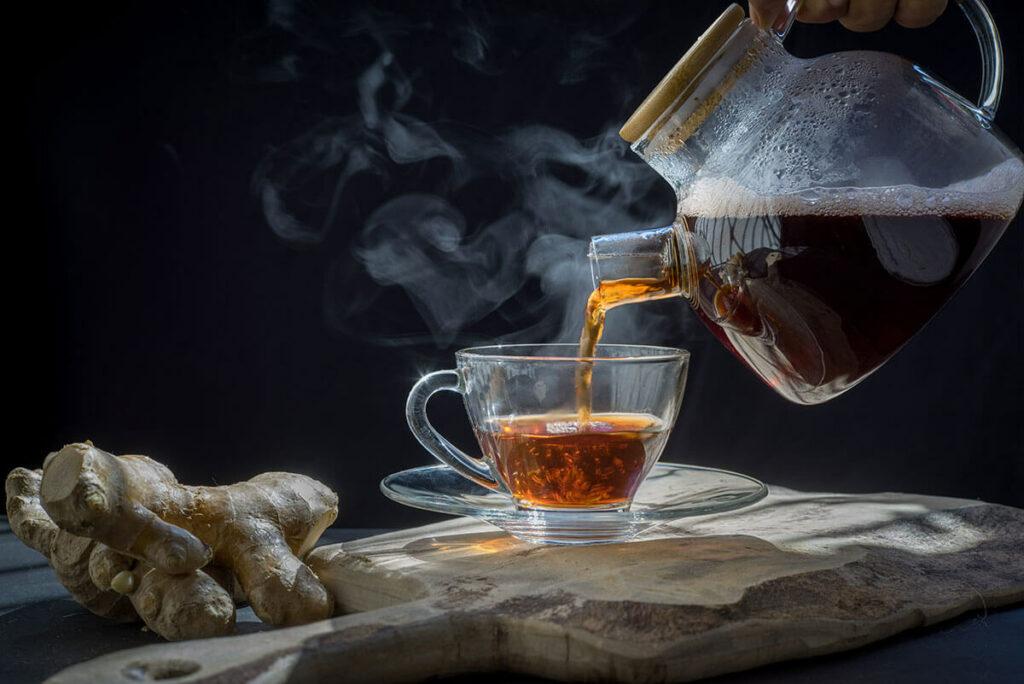
Drink in Moderation
The health benefits of māmaki tea came a long way. Your reasons to drink it may be for pleasure or for better health, but do this in moderation. A good limit is to stop at no more than 3 cups per day.
Although māmaki tea is a herbal tea and is naturally caffeine-free, it can stimulate and energize you right after drinking it. Also, it can be a strong diuretic, in other words, it leads to more urine by pulling more water and salt from your body.
Māmaki tea may be revered as a miracle drink. But do consult your physician if in doubt before taking any herb like māmaki tea, especially if you are pregnant, nursing, or taking any prescribed medication.
References
